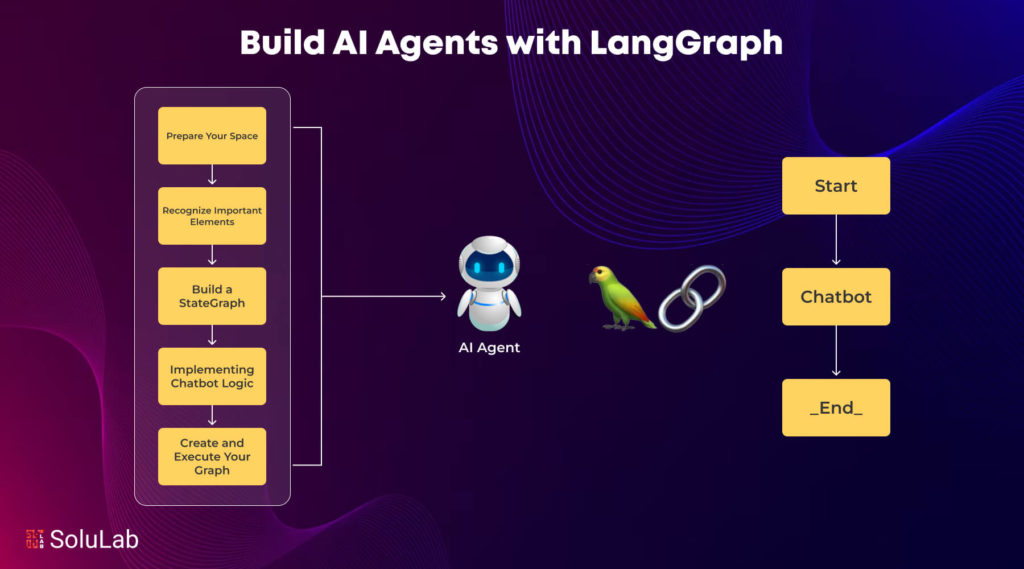Excellent Suggestions For Picking An AI Agent Site For Business
Wiki Article
Ai Agents Can Be Used By Companies To Cut Down On Errors That Occur During Financial Transactions.
Here are 10 tips for companies on how to decrease the amount of errors in financial transactions by using AI agents.
1. Automated Data Entry
AI eliminates data entry errors by:
Making use of OCR (or optical character recognition as well as NLP (natural language processing) to extract financial information from documents such as invoices, receipts and other financial documents.
Data can be synchronized directly to the financial system, eliminating the need for manual input.
2. Smart Validation Rules
AI ensures data accuracy by:
Cross-referencing inputs using historical data and other sources, and defined rules.
Error detection in real-time, such as duplicate entries, incorrect totals, or incorrect formats.
3. Leverage Real-Time Anomaly Detection
AI identifies discrepancies by:
Monitoring financial transactions in order to spot abnormal patterns and outliers.
Informing users about potential fraud or mistakes prior to them escalating.
4. Standardize Financial Processes
AI ensures consistency through:
Automate repetitive processes such as the calculation of taxes, invoices, and journal entries.
Reduce the variation in manual processing among teams.
5. Predictive analytics
AI minimizes forecasting errors by:
Examining trends in the past and real-time data to provide accurate income, cash flow, or forecasts for expenses.
Identification of areas where there are differences.
6. Automate Reconciliation Processes
AI increases the accuracy of reconciliation of accounts through:
Automated reconciliation of ledgers to transactions. Invoices and bank statements.
Highlighting unmatched products to resolve the issue quicker.
7. Deploy Intelligent Approval Workflows
AI reduces human oversight errors by:
Financial approvals are sent out in accordance with guidelines that are preconfigured to the correct individuals.
Making sure that transactions meet the requirements before being processed within the workflow.
8. Conduct regular audits of data
AI simplifies audits by:
Monitoring and verifying the accuracy of financial records in accordance with regulations.
Reporting that is audit-ready with detailed track of changes and corrective actions.
9. Integrate AI with existing financial systems
AI reduces integration errors by:
Integration of ERP, CRM, Accounting platforms.
To avoid data silos, mismatched entries or other irregularities.
10. Give training for effective AI Utilization
AI works best with educated users
Employees need to be trained on how AI tools can be employed effectively, as well as the knowledge generated by AI.
Encourage trust in AI for accuracy while overseeing critical decisions.
These strategies could help companies reduce mistakes in manual processes, improve efficiency and accuracy, and also free up resources for strategic financial activities. Take a look at the expert AI agent for Customer Support for more info including AI agent for customer order processing, AI agent for customer ticket management, AI agent for procurement, AI agent for litigation support, AI agent for contract renewal notifications, AI agent for threat intelligence gathering, AI agent for accounts payable management, AI agent for response time monitoring, AI agent for customer knowledge management, AI agent for billing dispute management and more.

Ai Agents Can Seamlessly Integrate With Existing Systems In 10 Different Ways.
Here are 10 ways AI agents can seamlessly integrate with existing systems to streamline financial operations.
1. Automated data synchronization across different systems
AI agents are able to be used to ensure smooth data flows through:
Data synchronization between ERP, CRM and accounting systems.
Reduced manual data input and uniformity across platforms.
2. Real-Time Transaction Processor
AI agents support real-time processing through:
Integrate with financial platforms, banks and payment gateways to process transaction immediately.
Be sure that the financial data is accurate by ensuring that records are updated immediately across several systems.
3. Cross-System Reconciliation
AI agents can help reconcile financial data across various systems through:
Automatically connecting transactions across accounting, ERP platforms and payment platforms.
Recognize discrepancies and resolve the issue without the need for manual intervention.
4. Unified Reporting and Dashboards
AI agents can produce complete reports using:
A single dashboard that aggregates information from various financial systems.
In-depth and real-time financial information as well as performance metrics that allow you to make educated decisions.
5. Seamless API Integrations
AI is able to be integrated into existing systems by using APIs.
Application Programming Interfaces can be used to connect AI agents with the existing software tools.
AI agents can be programmed to process information, transfer it between systems, and then retrieve it.
6. Workflow Automation between Platforms
AI agents can automatize processes through:
Automate processes, such as invoice generation or payment approvals. Also, you can automate system integration.
Improved efficiency and accuracy by removing the need for manual intervention.
7. Intelligent Document Management
AI can handle documents across multiple systems using:
Using Optical Character Recognition (OCR) and Natural Language Processing (NLP) to identify and classify data from invoices, contracts, or receipts.
Automatically uploading data to the appropriate systems (e.g. accounting software and document management systems) to store and access.
8. AI-Driven customer relationship management
AI is able to be integrated into CRM systems:
The analysis of customer data from financial systems to offer specific financial products or advice.
Automatically updating customer records to reflect transaction history, payment behavior, and other insights obtained from AI analysis.
9. Fraud Detection Across Financial Systems
AI enhances fraud detection by:
Continuously analyzing transaction data across the integrated financial platforms to identify irregularities.
Informing users of potential fraud in all systems.
10. Predictive Analytics Integration
AI is integrated with financial forecasting software by:
Cash flow, revenue, expenses can be predicted by using data from accounting, payment, and sales systems.
To improve the accuracy of forecasting, add this information into your financial planning software.
Through leveraging AI agents to seamlessly integrate with existing financial systems, businesses can enhance operational efficiency, improve efficiency, speed up workflows and make more data-driven choices faster and more efficiently. See the recommended AI agent for Regulatory Reporting for more recommendations including AI agent for billing and insurance, AI agent for credit management, AI agent for license management, AI agent for launch campAIgns, AI agent for product review requests, AI agent for contract renewal notifications, AI agent for data privacy compliance, AI agent for incident response documentation, AI agent for csat monitoring, AI agent for litigation support and more.

Scalability For Growing Businesses: 10 Ways Ai Agents Can Help.
Here are ten ways businesses can use AI agents to help scale finance operations for growing businesses.
1. Automating Routine Financial Tasks
AI can be used to reduce the financial operation:
Automate tasks such as invoicing, data input, and processing transactions, in order to manage an increase in transaction volume without additional staff.
As businesses grow, they can handle more financial data, reducing manual work as well as human error.
2. Scalable Financial Reporting
AI lets businesses scale up reporting by:
Automatically produce financial reports in real-time regardless of whether transactions or data volumes increase.
Customizing reports for different departments, regions, or business units, ensuring consistency across all levels of the organization.
3. Reducing the number of accounts payable and accounts receivable
AI agents assist in scaling AR and AP process by:
Automating the management of receivables and payables, to facilitate faster processing of invoices as well as reminders for payments and collections.
The time saved from manual follow-ups allows companies to manage multiple accounts.
4. Intelligent Cash Flow Forecasting
AI can help scale cash flow management by:
The ability to predict your cash flow needs with historical data and current market trends.
Automatically adjusting cash flow forecasts when the company expands to ensure that businesses are able to satisfy their liquidity needs without putting financial departments under pressure.
5. Optimizing Supplier and Vendor payments
AI can assist in scalability of vendor relationships by:
Automating payment schedules and helping negotiate better terms with vendors as the volume of transactions increases.
Making it easier to approve payments and tracking enables businesses to grow their supplier base while also reducing costs associated with manual processes.
6. Scalable Fraud Detection and Risk Management that is scalable
AI assists in the scalable management of risk by:
As the volume and complexity of transactions increases, you should continue to be on the lookout to identify any indications of fraud.
Using machine learning algorithms to assess risk and flag problems early, assisting businesses scale securely without compromising compliance or financial stability.
7. Automated Compliance and Regulatory reporting
AI facilitates scalable compliance:
Automatically updating compliance processes in response to regulatory changes and creating the required reports helps businesses stay in compliance as they expand their operations to new markets.
The requirement for manual monitoring is reduced and compliance violations are minimized.
8. Real-time analysis of data for decision-making
AI increases scalability:
Real-time analysis for decision making allows leaders to make faster and better informed business decisions.
Automatically identifying opportunities, trends and inefficiencies. Offers insights that support scalability on every level.
9. Customized Customer Billing Assistance
AI can help scale customer interactions through:
Automating personalized billing using customer preferences, patterns of usage and pricing models can ensure that customer support is efficient as customer base grows.
AI-powered chatbots can be used to cut down on the workload of support personnel for customers by handling a growing number of requests from customers.
10. Integrating new Systems and Tools
AI is a powerful tool for integrating systems.
As the company grows and expands as it expands, the software seamlessly connects with new platforms, financial tools, and other software. This makes sure that the business runs smoothly without the need for any manual intervention.
By allowing businesses to quickly adapt to changes in technology the financial processes will continue to expand and grow without disruption.
Companies that employ AI agents can scale their operations efficiently to manage growth, decrease complexity, and keep an efficient process as they grow. This eliminates the requirement to manually manage the process and allows companies to concentrate on strategies for growth while AI manages operational scaling. Take a look at the top AI agent for Procurement Expense Tracking for site tips including AI agent for prospect segmentation, AI agent for contracts, AI agent for server performance monitoring, AI agent for information security management, AI agent for contract expiration tracking, AI agent for accounts payable management, AI agent for policy adherence, AI agent for digital marketing, AI agent for customer feedback collection, AI agent for chat transcription and more.
